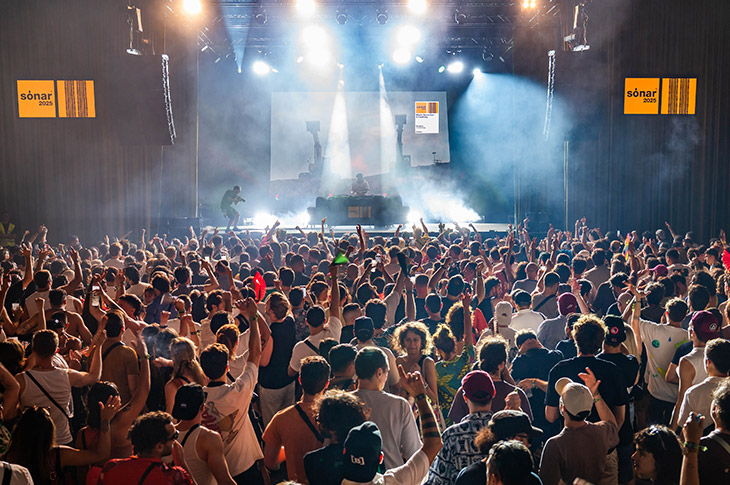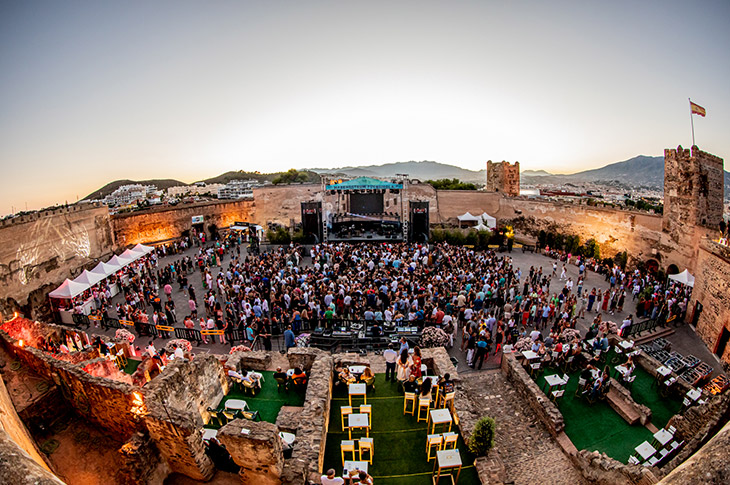Seven accessible festivals that make Spain a music destination without barriers
Musical events in Spain that have demonstrated their commitment to inclusion over the last five years
Accessibility is gaining ground on the Spanish cultural scene thanks to music festivals that—besides establishing themselves as must-see events in their genres—have been steadily incorporating measures to guarantee real inclusion for all. Dating back over at least five years, these events are not only focused on live music, they’re redefining access to leisure through adapted spaces, assistive technologies, and experiences designed for the most diverse audiences. Primavera Sound (Barcelona). This international indie-music landmark, held since 2001, integrates accessibility through measures such as vibrating backpacks, hearing loops, PRM zones, and adapted signage. What’s more, it offers support staff and subtitles during performances, as well as working alongside various social entities. The city of Barcelona complements the experience with its Modernist architecture—headed up by the Sagrada Familia and Park Güell—a vibrant culinary scene, and the charm of the Mediterranean, accessible from urban beaches like Barceloneta. Sónar (Barcelona). As a pioneering festival of electronic music and digital art, Sónar combines cutting-edge sounds with a firm commitment to accessibility. This event has been held since 1994 and, in its latest editions, has incorporated resources such as vibrating backpacks, elevated platforms, Navilens codes, Braille programming, and preferential seating at the Sónar+D conferences. This festival allows visitors to discover a creative and open Barcelona, welcoming diverse audiences with ease.

Sonorama Ribera (Aranda de Duero, Burgos). This Castilian festival, active since 1998, brings together national and international artists, while standing out for its local roots and social commitment. Those who need it will find accessible platforms, clear visual signage, vibrating backpacks, and personalized assistance. In the heart of Ribera del Duero, this event perfectly complements the region’s winemaking tradition, the renowned cuisine of its grill houses, and an old town dripping with authenticity and a friendly feel. Low Festival (Benidorm, Alicante). With 15 editions, this festival has asserted itself as an essential indie event, featuring an accessible area, adapted entrances and restrooms, vibrating backpacks, a hearing loop, and informative pictograms. Amid an urban environment that knows how to reinvent itself, Benidorm offers accessible beaches with walkways, assisted bathing points, and modern hotel infrastructure, as well as a range of leisure activities for all audiences. Marenostrum (Fuengirola, Málaga). Sohail Castle serves as the backdrop to this well-established musical series, featuring accessible seating, assisted transportation, easily understandable information panels, and personalized assistance. Finally, the experience is rounded off by Fuengirola’s beautiful seaside promenade, its mild climate all year round, and adapted accommodation options, perfect for those seeking leisure and relaxation by the sea.

B-Side Festival (Molina de Segura, Murcia). Since 2005, this alternative indie-music festival has championed inclusion with adapted schedules, vibrating backpacks, easy-to-read signage, and accessible activities distributed across the town center. Here, visitors discover a town that combines the legacy of the Murcian market gardens with continuous cultural programming, as well as its proximity to the capital, known for its Baroque cathedral and lively atmosphere. Big Sound Festival (Valencia and Pontevedra). Though this festival’s main venue is located in Valencia, it has also hosted editions in Pontevedra. The urban music festival guarantees adapted access, subtitles, sign language, and support staff. On top of all this, Valencia adds its contemporary architecture (City of Arts and Sciences), urban beaches like that of La Malvarrosa, and vibrant nightlife. Pontevedra, meanwhile, stands out for its old town, natural surroundings, and cultural offerings with an Atlantic accent.

